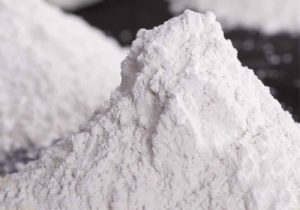
CP-10 Organoclay
CP-10 organoclay is a rheological additive made of organoclay. It is used in non-polar to moderately polar aliphatic and other solvent systems
Clay Rheology Modifiers : The Camp Shinning Clay Rheology Modifiers can be of assistance. Our clay additives keep pigment from settling and thin out your paints so they will stay well-mixed and attractive. Don’t let your paints let you down because your finished product is only as good as its foundation. For an unbeat
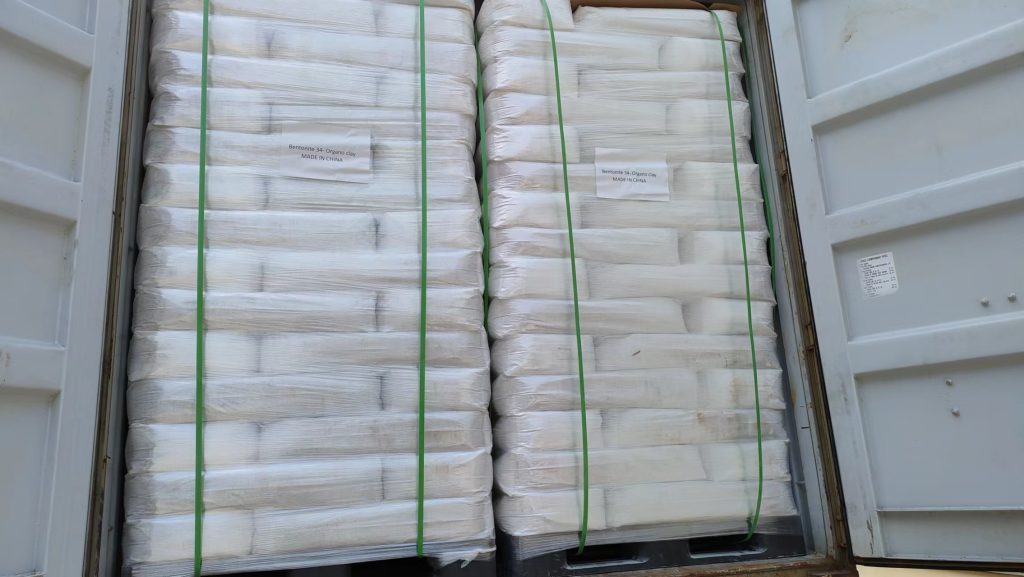

CP-10 organoclay is a rheological additive made of organoclay. It is used in non-polar to moderately polar aliphatic and other solvent systems

CP-MPZ organoclays is an modified bentonite that is used in solvent and resin systems ranging from non-polar to highly polar.

The CP-MPS rheology modifier is a type of organo clay rheological additive that is used in solvent and resin systems ranging from non-polar to high polarity.
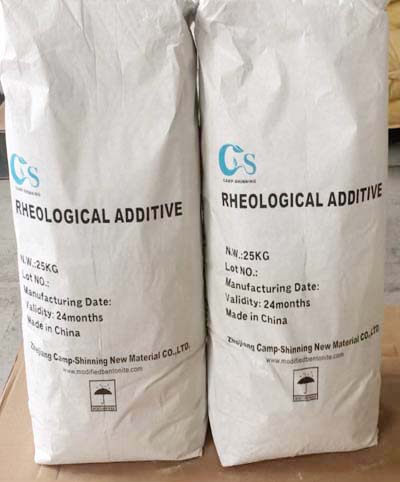
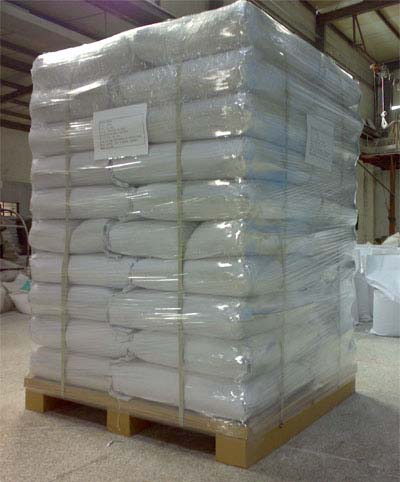
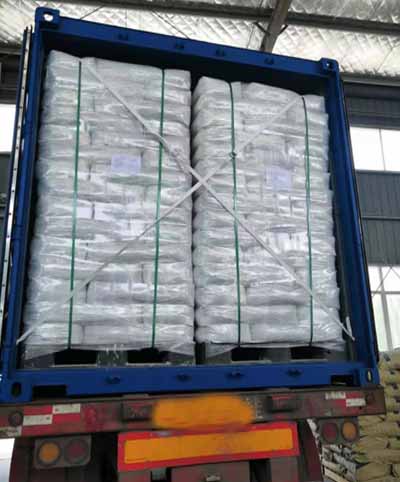
Organoclay Supplier / Manufacturer :
Internet address: https://www.rheologymodifiers.com/
Email address: [email protected]
Whatsapp / Wechat: +86-13185071071
Organophilic Clay Supplier / Manufacturer :

CP-EW Organoclay for Water Based paint. It is primarily employed in water borne paint systems,such as latex paint. So it is a good water based additive in paints,coatings,grease etc.

CP-EWS Modified bentonite It is employed in a water-borne coatings system. CP-EWS organoclay outperforms CP-EW in terms of thixotropy, transparence, and dispersion.

CP-WBS Rheology Modifier is rheological modified bentonite. It is mostly employed in water-borne systems.


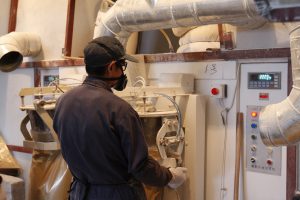
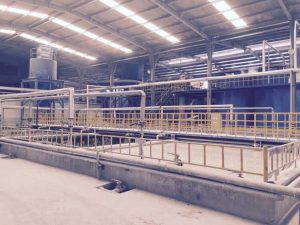

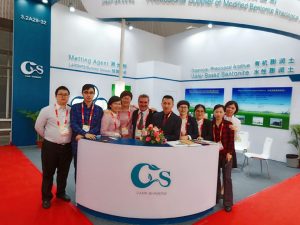
The Organoclay bentonite | Organophilic clay -specialized Zhejiang Camp-Shinning New Material CO.,LTD. and Hangzhou Camp-Shinning CO.,LTD. are subsidiaries of Camp-Shinning.
Camp-shinning concentrated on high value-added, high-technology organo bentonite series products, particularly in research, development, manufacturing, and sales of organic (solvent based organoclay) and inorganic bentonite (water based organoclay).
Our Organophilic bentonite clay finds widespread application in oil drilling mud, paint, coating, lubricating grease, adhesive, construction mortar, cosmetics, and waste water treatment, among other applications. A group of world-class professional users and distributors, such as SUN CHEMICAL,,SIEGWERK,LEHMANN &VOsS, and others, have acknowledged our dependable quality.
Current annual production of organic bentonite clay | organoclay is 20,000 metric tons, while refined bentonite production is 15,000 metric tons.
Our ISO 9001 quality system certification and IS014001 environmental management system certification, as well as our own mine with superior ore quality and production of proprietary technology, ensure the long-term quality and supply stability of our Organoclay bentonite | Organophilic clay.
Our mission is to provide users with superior Organoclay bentonite | Organophilic clay and services and to collaborate with them to achieve success and glory.
Internet address: https://www.rheologymodifiers.com/ and email address: [email protected]
Whatsapp / Wechat: +86-13185071071
Clay Rheology Modifiers
In this post, we will look at the many types of clay rheology modifiers available. Fumed silica, Montmorilonite, Organoclays, and CP-34 are examples. These materials can assist increase the viscosity and viscoelasticity of your fluids.
Organoclays are made by exchanging bentonite with quaternary ammonium compounds. The quaternary ammonium compounds have an effect on the basal spacing of the clay particles as well as the bulk density. The carbon content and chain length of the organoclays determine their rheological behavior. They also have an impact on the yield stress and the stability of the gel formations. These organoclays are useful rheology modifiers for biodiesel and clay dispersions for deep-water drilling.
Clay Rheology Modifiers | Organoclays
Organoclays clay rheology additives are quite good at reducing sagging and maintaining coating levelling. Some are more adaptable than others. Bentonite-based organoclays, for example, offer high sag resistance, whereas hectorite-based organoclays are better suited for polar systems. Organoclays also help to keep fillers and pigments stable. They allow for uniform application of paints, minimizing the requirement for polar activators.
Special clays can also help improve the performance of coating systems. They can enhance the unique qualities of a paint. They can help to solve settling issues, manage syneresis during storage, and prevent pigment paste sedimentation.
Organoclays clay dispersions are made up of two layers of surfactants. The first layer is polar, whereas the second layer is nonpolar. Polar solvents swell the polar surfactant layer, while nonpolar solvents swell the nonpolar surfactant layer. The nonpolar layer is larger than the polar layer and increases basal spacing. Both layers are crucial in the rheology of clay-based compositions.
Organoclays and organically modified laminar silicates are examples of rheological clays. The clays have good wettability and suspension characteristics.
Clay Rheology Modifiers | Montmorilonite
The rheology modifier is a compound made up of montmorilonite clay and a quaternary ammonium salt. When this complex comes into contact with organic solvents, oils, or a liquid resin, it forms a gel. It has good flow qualities and many applications in the coating industry.
Inorganic clay rheology modifiers are frequently employed in the formulation of numerous aqueous and non-aqueous systems. These additives provide outstanding stability and anti-sag qualities. They also provide an efficient low-shear viscosity build.
Rheological features of certain clays are distinctive. The rheological properties of particular clays are significant in paint and coating formulations. When combined with specific surfactants, these clays have a wide range of properties, including good adsorption and settling. The clay’s distinct morphology also makes it appropriate for usage in solvent-based and water-based coatings.
The unique clays are a subgroup of the phyllosilicate minerals. They are commonly utilized in industrial applications. Each of these clays differs in terms of block unit distribution and shape. The shape of the clay has a significant impact on its rheological qualities.
Clay Rheology Modifiers CP-40
CP-40 is an organic derivative of bentonite clay that is intended to improve the rheology of organic systems with low to intermediate polarity. This clay rheology modifier is utilized in a variety of applications, including sticky glues and seal gums.
Rheology modifier
Rheology modifiers are used in coating processes to improve viscosity, offer thixotropy, and prevent pigment settling during storage. They also increase flow and leveling qualities and have a high temperature stability. Consider the following variables when choosing the optimum rheology modifier for your clay application.
There are various forms of clay rheology modifiers. Organoclay is one example. Organoclay comes in a variety of forms, including water-borne, solvent-based, and pre-gel. Another form is amine-treated Bentonite. These modifiers function by boosting the carrying capacity and improving the suspension characteristics of a clay-based solution.
Rheology modifiers for clay are a diverse and cost-effective way to improve the viscosity of a coating. They assist paint in achieving the correct viscosity and manage other qualities such as ease of application, open time, and sagging. The correct rheology modifier depends on your application method and project needs.
Rheology modifiers for clay can be combined with a number of additives to increase coating consistency. They can be used with organic thickeners such as cellulose ethers to create the necessary consistency. They can also be used to improve settling issues in paint and pigment pastes.
Using a rheology modifier in a clay-based drilling fluid is a tried and true method of reducing the amount of organophilic clay in drilling fluid. These modifiers enhance the qualities of non-damaging reservoir drilling fluids by modifying rheological properties.
Organoclay Supplier / Manufacturer :
Internet address: https://www.rheologymodifiers.com/
Email address: [email protected]
Whatsapp / Wechat: +86-13185071071
Organophilic Clay Supplier / Manufacturer :

CP-180 organoclay is an organo clay rheological additive (modified montmorillonite) designed specifically for use in solvent-based systems

CP-34 organoclay is a modified bentonite that has been specifically designed for use in solvent-based systems.

CP-EDS modified bentonite is a kind of organo clay rheological additive. It is used in systems of medium polarity and high polarity system.

CP-992 Organophilic Clay, the wet process improved viscosifier and gelling agent . It is a rapidly dispersing.

CP-982 Organophilic Clay is an amine treated bentonite with a moderate temperature performance.

CP-150 Organophilic Clay is a self-activating organoclay that disperses easily and performs well in diesel, low aromatic mineral oil, modified vegetable oil, and synthetic base fluid formulations.
Clay Rheology Modifiers